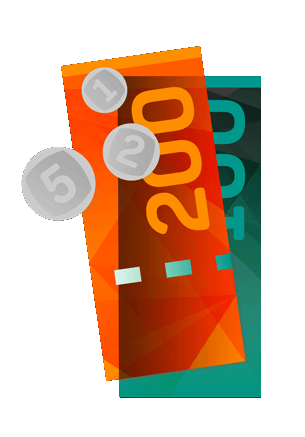Income is any money you receive on a regular basis. You might earn income from various sources including: salary or wages, a social government grant, allowances (from family and friends) or cash gifts.
It can also be money received from offering a service like baking, sewing, looking after children, braiding people's hair or offering a taxi service.
We know that budgeting sounds complicated and a little intimidating but a budget is simply a plan that helps you see how much money you get every month, where it is spent and how much you plan to save.
These five easy steps will get you started in drawing up a budget:

Distinguish between your needs and your wants.

List your sources of income.

List your expenses, including what you need to save.

Subtract your expenses from your income to see what you have left.

Keep track of your monthly expenses by updating your budget regularly.
Distinguish between your
What is your monthly
Income is any money you receive on a regular basis. You might earn income from various sources including: salary or wages, a social government grant, allowances (from family and friends) or cash gifts.
It can also be money received from offering a service like baking, sewing, looking after children, braiding people's hair or offering a taxi service.

The amount you pay does not change frequently and payments are made regularly (e.g. monthly) including rent or bond repayments, school fees, insurance premiums and car repayments.

For these accounts you must give your bank notice when you want to withdraw your money.

These accounts are for short-term investments of less than 12 months.


